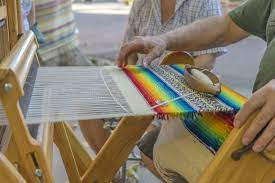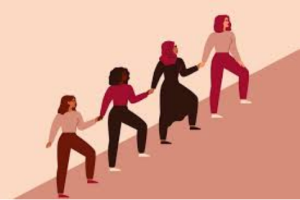
Ethiopia has been celebrating Meskel- The Finding of the True Cross- for over 1,600 years, and it has become one of the most important street festivals. Meskel, which literally means Cross, is a UNISCO registered intangible heritage. The Holiday begins on the eve called Demera. The following day is a Holiday called Meskel.
Beyond its national and religious features, Meskel signifies the coming to the light from the darkness,(from rainy, cloudy and thunderous season to sunny and bright) said Teshome Ayele, General Manager of Balageru Tours, whom The Ethiopian Herald approached for his views.
According to him, Meskel is a beginning of hope. It is a unique religious and cultural festival for Ethiopians. It is a manifestation of Ethiopianism. Whenever there is holiday, there is also culture. The two are two sides of a single coin. “Thus, whenever we celebrate Meskel, we are also manifesting our cultural values.” Born and grew in rural part of the country, Meskel has a left lasting memory in his mind.
For Tesohme, Demera in rural parts of the country has a significant role among the society. It is the time where elders bless the younger one. Meskele marks a transition from the rainy seasons of Genbot , Sene, Hamle and Nehase (May, June July, August) to the sunny months.
In addition to its religious and cultural values, the Festival is also a time where children are allowed to eat the fresh grain freely. It is also a time where they enjoy playing on the green field.
In this transitional month -Meskerem-elders bless the youths, the land and the people as a whole. Meskel or Demera serves as a podium to their blessings. While lighting the bonfire, elders bless the land to yield plenteously and the coming seasons to be productive and successful.
Meskel also signifies a time where everyone can clearly see the beauty of nature where the sun kisses the green land and shepherds relax while keeping their cattle and birds enjoy the beauty of nature.
Tesohme said, Ethiopia is rich of several holidays and cultures that clearly define our identity. Chembalala, Ashanda, Meskel, Irrechaa and others have a key role in promoting Ethiopia and bringing people from different walks of life into a single place. In this regard, Demera is a good example.
Whenever there is Demera, every individual come up with his bonfire and when lighting the bonfire, sing together and bless each other. This is Ethiopia. The more we become together the more we become strong and beauty.
Our cultural practices are powerful to bring us together. The way we eat together and the way we celebrate cultural and religious holidays have some kind of mysterious power in bringing us together. They give us more beauty. Our cultural practices are our unique identity. We have to preserve them and pass to them safely to the coming generation.
Demera in Addis Ababa is celebrated with other version. Meskel had been celebrating colorfully for centuries in Ethiopia. But the festivity being observed in the capital Addis Ababa is extremely breathtaking. The festival at Mekel Squere in Addis Ababa is the most grand one by all standards – the presence of Patriarch of Ethiopian Orthodox Tewahdo Church, religious leaders and other senior public officials and diplomatic corps as well as the uniqueness of the procession could be just to mention but a few.
People in almost all places in the capital build cone-shaped large piles of wood around a tall pole in the middle with yellow daisies made into the sign of a cross at the top. When the Damera is ablaze people chant religious songs. The people toss flaming torches which they are carrying at the Demera, singing a special Meskel song as they circle it. During the eve of Meskel, it is common to see most of Addis’s residents preparing themselves for the festivity. What is more, it is common to see several villages in Addis decorated by green, yellow and red pieces of cloth.
According to Tesohme, beside attracting tourists, holidays and cultural practices have key roles in shaping the new generation as well as building the identity of the youth by helping them to demonstrate their way of doing things (culture) in public. Festivals like Meskel and Timket (commemoration of the Baptism of Jesus) are also attracting countless of tourists from around the world, helping the nation promote its remarkable cultural heritages–not to mention the ever increasing foreign earning as a result of it. In this regard, it should not be only the government agency or any organ that should take their responsibility to promote our culture. Every Ethiopian is duty bound in this regard.
This is especially true for the new generations that some are obsessed in the “golden prison” and affiliated with the West culture. If we do not properly nurture and preserve what we have no one will protect it for us. Preserving our culture is our duty.
According to Ethiopian Orthodox Church history, in 326AD Queen Helena, the mother of Rome’s first Emperor, Constantine prayed for guidance to find the cross on which Jesus was crucified. The answer came to her in a dream. Queen Helena was so concerned about the whereabouts of the Christ’s cross that she lit a bonfire and added frankincense to it. The smoke from the incense went up and then came down to one of the mountains. This showed where the True Cross was buried. She was directed by the smoke and ordered her subjects to dig out the cross from where it had been buried for years.
There was a time where Christians were persecuted because of their religion. However; in times with the expansion of Christianity, it became an official religion in the Roman Empire. All Christians had the chance to practice their faith freely. In this regard, Meskel is not only considered as religious festivity but it is also a symbol of light and the beginning for the rest of their journey.
The Ethiopian Herald Sept 25 /2019
BY LEULSEGED WORKU




